[dropcap style=”font-size:100px; color:#992211;”]S[/dropcap]wansea’s Panic Room are one of British rock’s best-kept secrets.
Over the past few years they’ve built up a loyal following and gathered significant critical acclaim, including lead singer Anne-Marie Helder being voted Female Vocalist of the Year by readers of Classic Rock Presents Prog magazine (two years running).
Trebuchet recently caught up with Anne-Marie and keyboard player Jon Edwards. They talked at such length and about so many things we decided to split the interview into three parts. They begin by talking about their most recent album S K I N.
Your third album, S K I N came out in July. How would you describe it for someone who’s never heard any of Panic Room’s music?
Anne-Marie Helder: I would say this is music that will rock, groove, beguile and move you. It kicks off in an atmospheric and dark place, bursts into a life with gut-punching power, and then hijacks you for a journey of emotions over the next hour.
For those who already know the band, I would say S K I N is deep, dark, and deliciously different. It still has the same Panic Room sound, but whereas we really set out our stall with Satellite in 2010, and found our signature sound. S K I N takes that sound and runs with it.
It’s a bit like the Mars Rover. Through Satellite we kind of ‘arrived’, and now we’re starting the real journey, of exploration. S K I N is, some would say, darker than our last album. But I think there are so many deep and beautiful layers to it as an album, that ultimately I hope people will feel a multitude of emotions when they listen, and be both ‘floored’ and uplifted by the music at different moments.
Jon Edwards: Describing music with words… it’s always a difficult one. I think as a musician and songwriter, all you can do is create something, then you have to let it go… and it becomes whatever the listener wants it to be. Everybody hears it differently. In some ways, the last person who you should probably ask about what Panic Room’s music is like is the band.
But I guess what I would say to someone who’s never heard any of our music is just to listen and feel it. This music is something that’s really important to us – we make it because we have to, we’re driven to do it and we try to make music that means something to us. So we hope that it’ll provoke an emotional response in the people who hear it – it’s music for the head and the heart – we hope it has intelligence and emotion, so if it doesn’t move you on any level, then we’ve failed.
Did you take a different approach to the writing and recording compared to previous two albums?
Anne-Marie Helder: Yes and no – we actually really found our perfect rhythm on the recording of the last album (Satellite), so we knew what we wanted to do this time around. How to go about it, what feels right to us and produces the best results.
That’s not to say it’s ever going to be the same process twice – that can never be!
[quote]we set ourselves a deadline, and of course, went over that slightly![/quote]
In terms of writing, I think we gave ourselves a little more of a deadline this time, as we really wanted to get the new album out in early-mid 2012 and there’s a lot that goes into getting an album out to the public after you’ve finished the recording. So, we set ourselves a deadline, and of course, went over that slightly! Deadlines are great to give you the kick you need, but haha, they’re there to be broken too!
Anne-Marie Helder
Anyway, we did have some material which felt ready, and others which were still only ideas… soooo many ideas. We always have a lot, especially Jon, who is pretty prolific. I tend to be more inspired at certain moments, and absolutely NEED to get that idea down. Often it’s in the middle of the night or when I’m driving though, unfortunately!
But we knew we had a lot of strong stuff there, so it was no problem to get it to an album-ready stage.
We worked on ideas in late 2011, got together for a few weeks of jamming and rehearsals in January 2012, and then sent ourselves into the studio for our first sessions at the end of the month. It all felt quite quick, and intense, but great too!
We knew we wanted to record ‘as live’ again, like with Satellite – all of us playing at the same time, for each song, and get as many fresh ‘first-takes’ as possible. So we attacked it the same way as before, and that definitely works for us.
We had Yatim with us this time (his first actual album recording with us), so that was a new element; but he thrives on the energy and dynamic of playing live, so it felt even more right to stick to that recipe! It just works, for us. Maybe it’s because our rhythm section are just so damn good… we really are totally spoiled! Gavin and Yatim are monsters. And when they play together… I guess they’re a two-headed monster!
We did give ourselves the extra luxury – and challenge – of writing for live strings this time too. But that was a positive development and addition to our previous approach, which we knew worked well; not a diversion.
[quote]playing live really taught us that the best music is made when musicians play together[/quote]
Jon Edwards: Satellite was a real game changer in terms of recording for us. After having gigged a lot following the release of Visionary Position, we realised that the band’s strength was in the way we all played together and interacted – playing live really taught us that the best music is made when musicians play together, so when recording Satellite we decided to carry that ethos into the studio and go for as live a feel as we could for that album.
We decided to record the band playing the songs live, then overdub additional parts and final vocals. It really gave the album a much more live and organic feel and laid the template for how we’ll probably record in future.
So there wasn’t a huge difference in the recording sessions for SKIN besides including a string quartet. We followed a similar pattern, rehearsing the songs before going into the studio and then playing them live. We then recorded any lead lines or additional rhythm parts or layers later along with the final vocals. We’ve found it a really exciting and productive way to work and for us it really helps capture the energy that we get from a live performance.
Although we do go into the studio knowing the song structures, it’s also really important to leave the time and space for improvisation as well and to allow for those spontaneous things to happen that add the magic to the music. So we always try to not pin things down too much in the studio and be flexible – we never really know how an album is going to turn out until it’s completed and that’s the way we like it. It’s important that an album is as much a voyage of discovery for us making it as it is for the listener hearing it and that’s very much how it was with SKIN.
What prompted the idea of using a string quartet?
Jon Edwards: From very early on in the development of the songs for SKIN, we decided that we wanted to write string arrangements for the album. It’s something that Anne-Marie and I have done for our new acoustic project, The Kindling (due for release in late 2012/early 2013). The experience of writing for strings for that project, and working with classically-trained musicians was a very rewarding one. So we felt strongly that it was something that we wanted to try with Panic Room too and, from our previous experience, we knew that we’d be able to do it well.
The strings add a depth and a new dimension to the songs on SKIN and help them reach their full potential. We’re really pleased with how the sessions turned out.
Anne-Marie Helder: Yes, as Jon says it was great that we’d already had some experience of writing for live strings on a whole collection of songs. That was our first time, mind you! But we so loved it, and the musicians we used, that we were really eager to get them in again for a Panic Room album.
Personally, I have always wanted to write and record with strings, added to a full band sound, because I love the depth and layers of potential that they give you. I always felt that if we had the opportunity some day, Panic Room would perfectly suit this!
[quote]it’s important to me that a song is strong and dynamic enough to withstand any treatment[/quote]
We very much viewed the songs as complete on their own, and I know that any one of them would stand up on their own without strings – we’re still a five-piece band, and it’s important to me that a song is strong and dynamic enough to withstand any treatment, from a stripped-down solo acoustic version to a full-blown production or even dance remix!
The sign of good writing is in its ability to stay true to its original form, however transformed, simplified or embellished.
So each band member is absolutely vital to the sound on SKIN – the strings don’t ‘take the place’ of anyone else. There’s no need to, they’re all great players, but I knew there was scope for added drama and depth if we added real strings (as opposed to synth string sounds, or none at all) and I also tend to hear a lot of lines in my head that I just KNOW are right for strings, rather than any other instrument. They are there when I feel a song coming together – sometimes I end up singing them, as a melody line or harmony, because I feel their presence so strongly. But this time around, I could bring them to life from my head onto the page, and then into real musicians playing these lines. It was really emotional.
Jon and I were both keen to use the strings to really bring out each song, and not just be a bit of ‘padding’ there in the background. So the lines are often quite striking, dramatic and prominent… when they need to be. We both wrote the parts, some together and some separately, and we must write in a complementary way because afterwards, we sometimes forget who wrote which parts!
Jon: It was important to us to use the string quartet like a sixth member of the band for this album and have them play interesting lines and melodies that are important and integral to each song on which they appear.
It sounds so much better having real musicians playing the parts instead of using sampled string sounds, and the Larkin Quartet are a really important element in the sound of SKIN. It also disciplined us in our arranging and playing to leave plenty of space in the songs to allow the strings to shine through, while still retaining the valuable contributions to the music that all the other instruments in the band make.
You’ve got such a wide variety of musical influences between the five of you, it makes the band very hard to pigeon-hole genre-wise – one of the things that makes Panic Room such an interesting band. What, if anything, were particularly strong influences for SKIN?
Jon Edwards: We do have very wide and eclectic musical tastes in the band, and that definitely helps shape the Panic Room sound. That comes out in the songs that Anne-Marie and I write and in the way the others interpret and add their own personality to the music. Although, when writing, it doesn’t really work in an obvious way. So we’re not picking from a pool of influences and combining them to make a song in any conscious way – it just means that we have all these different musical references and styles in our heads, and they just come out when the song needs it… and sometimes it is the combination of diverse things that combine to create something new and interesting.
Sometimes, it’s only afterwards that you listen back and hear the influences in the songs – so, for instance, listening now to the hammer dulcimer solo on ‘Song For Tomorrow’ or some of the chord changes on the chorus in ‘Chameleon’, I can hear echoes of 60s TV themes like Department S or The Persuaders, that no-one else is probably picking up on, but we didn’t think of that when we were writing and arranging those songs. Similarly, someone told us that the chiming delayed guitar on the chorus of ‘Freefalling’ sounds very Coldplay, but again it wasn’t an intentional thing. We’re not deliberately trying to be perverse or quirky – we’re just trying to write good songs!
Anne-Marie Helder: I think everything around us influences what we write, and that’s true of any songwriter. I know people may want to hear that we’ve been listening to one or two particular albums, or inspired by a certain film or book etc, to develop the ideas and concepts leading to SKIN. But truly, it is so many things, and the magic is in the bringing all of those feelings, experiences and thought revelations in your life together, in a musical form that you just NEED to express.
And that’s the part that, try as I might, I sadly can never put into words for you. It’s something which can’t be explained, not really; and ultimately I don’t think it should be. The magic is in the music.
The best songs aren’t forced, I think; they develop with a natural flow of their own; and as such, a bit like an umbilical cord feeding the life-force of an album from its first seed of creation to its release, every possible thought, feeling, wondering and listening will channel its way into your music, by osmosis! This will change with every album, because it will change with every day.
Just as a human being can feel different about the world every day, so too will be the things that they express, if given the chance.
I think one of the strongest things about our songwriting as a band is that we let that process happen – we let songs unfold and form naturally, without pressuring them to be something we feel they ‘need’ to be to fit any particular model or stylistic desire we have to fulfil. I think that’s the only way to create something truly unique.
If we’re feeling like we need to rock out more, that comes out naturally when we jam… if we’re feeling more moody or introspective, that’s gonna come out too.
SKIN has a lot of depth and introspection to it because of the place we were all at when the songs came together. And the next album will, I hope, be an equally unique ‘snapshot’ of where we’re at when we record that.
You’ve got to be true to yourself, and your place in the world at any given moment; otherwise you lose your way. In that way, writing and playing music can be the biggest catharsis there is.
If I was to mention a couple of musical/artistic things that have impressed me over the last couple of years though, which stand out as impacting me creatively, they would probably include: seeing some great artists perform live – Imogen Heap, Elbow, Roger Waters, Lisa Hannigan – all unique artists, with uniquely brilliant shows. And watching some great films – from the more obscure such as The Diving Bell and the Butterfly (awesome), to the epic grandeur and scale of Black Swan.
As a child I danced ballet for 10 years, and my favourite ballet ever was Swan Lake, and so this film resonated with me… but especially because of the music, and how it took the essential melodies and themes of the ballet score and developed it into something even more dark and devastating. I’m very drawn to composition, and maybe listening to soundtracks such as this – which I did, around the period of writing SKIN – I opened up different areas of my mind which sometimes I might keep closed.
There seems to be something of a change of emphasis in the lyrics, with no songs about apocalypstick robots or mad cat ladies. Can you tell us something of the inspiration behind a few of them?
Jon Edwards: I think this is a much more personal album lyrically than Satellite, although there are some very personal songs on that album too. I think quite a few of us in the band were going through some dark times, when we wrote and recorded the album and I think that’s come through both in a lot of the lyrics and in the melancholy nature of a lot of the music as well.
Anne-Marie Helder: As with the music, I think that what you write lyrically is part of a much bigger picture – part of the flow of your life, and the world around you, and that is naturally ever-changing. Lyrics will reflect where you’re at in your life, and what you are experiencing at the time; what you’ve been through in recent times, what you’re reflecting on, and what you are maybe worried about. Or who you’re worried about.
[quote]Lyrics will reflect where you’re at in your life, and what you are experiencing at the time[/quote]
Satellite was probably a lot more personal in many ways than people realise on face value. There are perhaps more allusions and metaphors there, but I know what each sentence is really about (laughs).
With SKIN though, yes, I think people seem to find that it’s openly personal, in its themes and emotions, and they can easily see what some lyrics are about. Although, perhaps they’re just a little more exposed than hidden this time around; I don’t always mean to get metaphorical, but as a songwriter or poet that’s something that’s just part of your make-up I think! It’s natural for me to describe one thing by referencing another, explaining something in a way that I think gives the feeling across more easily. Metaphors and descriptive passages come easily to me.
Many songs that might have obscure or quirky seeming themes on Satellite may well be about profoundly personal things. But the fact that they can work or two or more levels, seems to be a natural way that I write. I think it’s because I’m a Gemini! (laughs)
But I think there’s a bravery and a challenge in stopping yourself from being overly floral and really trying to harness the bare bones of a song, really get to its core and bring people directly there with you.
There are still many lines on SKIN which I’m sure only I really understand, sometimes it’s hard to explain to people your exact feeling behind those words. But I have often been asked about lyrics in the past, and where possible, I will try to explain. I do want people to understand, and to get that deeper sense of where it’s coming from, if they are interested.
I’ll always probably want to write about a mixture of personal and world-observation though – ‘Screens’ on the new album is a track which describes how so many of us are slaves to our computers/phones/technology these days, and so in some ways links to the themes of ‘Elektra City’ on our first album!
But yes, there are also songs like ‘Skin’, the title track, which is intensely personal in dealing with the grief of my close family friends, after losing their son last year.
[quote]songs which have most of your heart and soul in, your pain, longing and your fight; these are the songs which people respond to the most passionately[/quote]
I was taught by a great English teacher in my teens, who told us that ‘the best writing comes from first-hand experience’. In other words, write about what you know, what you have seen, heard, touched, felt… and I always knew this was true. As a lyricist now, I have found it more true every day, because the songs which have most of your heart and soul in, your pain, longing and your fight; these are the songs which people respond to the most passionately, both at our gigs and when listening to the albums at home.
Many other bands have a clear leader that calls the shots, but Panic Room seems more of a collective than some of their peers. Is that an accurate perception?
Jon Edwards: We’re a pretty chilled unit – everyone plays their part in making Panic Room the band it is and everyone has different strengths and does different jobs in the band, from songwriting to booking the gigs and rehearsals, etc. That all works well for us. Not everything’s democratic, but it is a very collaborative process and any major decisions are agreed between all of us – we’re all friends together.
Anne-Marie Helder: Oh, am I not the leader? Hahaa!!!
Honestly though, I believe it’s different from band to band, but for us the collaborative way seems to work best. Maybe Jon and I do the majority of the songwriting, but it’s not in any way exclusive, and I always want to encourage the ideas from the rest of the guys! Whether it’s creative, practical, or in a planning sense. We are five musicians, and best friends, so when you put us in a room together there’s always going to be a lot of energy. Chemistry I guess, as well as a lot of laughter!
But they’re all very talented too, and no Panic Room song would be complete without the incredible input of each of the band. We can’t write a drum pattern like Gav can play it: he blows everyone out of the water! And he has a deeper feel and memory for music than most musicians I know. And then whereas Jon and I might be able to write melodies, song structures, lyrics, even string arrangements, we can no way play the guitar like Paul! And his true creative ability is fathoms deeper than that too; he feels every note, means every phrase, and has co-written with us on several tracks. Also I don’t know where I’d be without his secret guitar-tech abilities, he transforms my axes!
Yatim brings an amazing and unique energy to everything he does, and his passion is obvious when he plays! He’s been an incredible discovery for us, and his devotion to Panic Room is so strong, he lights the fire in anyone who’s around him.
Appearing on TV back in his home country of Singapore recently, he was featured on their primetime news and did it all wearing his Panic Room T-shirt! He’s such a star.
I couldn’t even begin to tell you all the jobs that Jon does, aside from the songwriting and of course his genius vamping on the keys! There is a lot in the day-to-day running of a band that people would never even imagine, but it all needs doing. And whoever you think is the focal point in a band, it does take everyone to make that band work the way it does.
It’s the same with us – you might see me singing the ‘lead’, but my boys help me pack away my leads! And whoever you see online chatting to the fans, there’ll be someone else booking our next rehearsals in the diary.
It’s very much a community, and I do think that business ventures always succeed better when you have that sense of mutual support, respect, friendship, and ideally, fun.
I will drive the car when I need to… and I’ll drive it fast. (Ask anyone in the band, haha!)
But I’m also happy to hop aside and be a passenger from time to time. Whatever gets us there.
In part two of the interview Panic Room talk about their upcoming tour beginning at The Borderline in London on November 10th, why Anne-Marie Helder is more Lady Gaga than Cheryl Cole, and where she got that distinctive red guitar.
[button link=”http://panicroom.org.uk” newwindow=”yes”] Panic Room Home[/button]

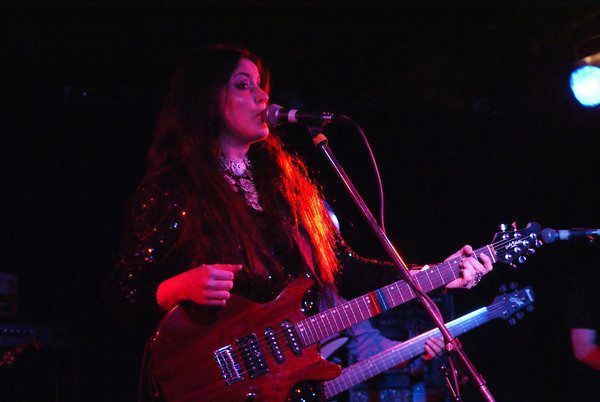
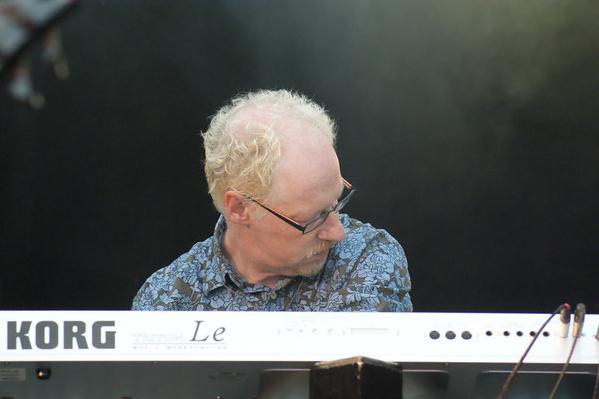



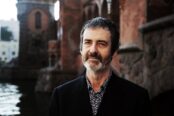
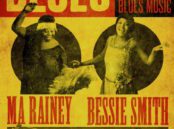
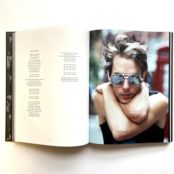
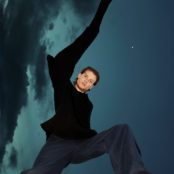





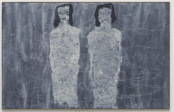






Excellent stuff Tim, can’t wait for the next episode now !
Like a conversation between friends… I can almost see the candle flicker, and the Merlot swirl in the glasses 🙂 Lovely stuff Tim, well done.
Tim? Merlot? Pint o’ Hobgoblin more like.
Anne-Marie is more of a wine-drinker, though 🙂